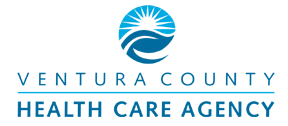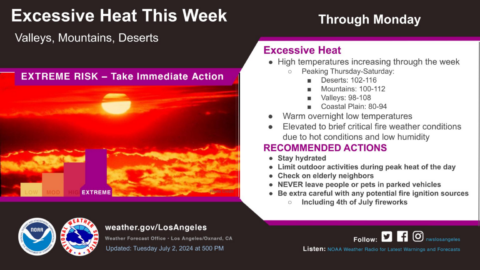November 2, 2023
Preparing for the 2023 Winter Virus Season
Ventura, CA – As we enter the Winter Season, Ventura County Public Health (VCPH), a Department of the Ventura County Health Care Agency, reminds the community of preventative measures that can be taken to lower the risk of respiratory virus infection, as well as limit the spread of respiratory viruses throughout the community, such as seasonal influenza (flu), respiratory syncytial virus (RSV), and COVID-19. The best protection against all three major respiratory viruses is to be up to date on any recommended vaccines.
Fall and winter season are when viruses that cause respiratory infection typically circulate more heavily within the community. These viruses spread through direct contact with a person who has a respiratory virus (i.e., coughing or sneezing) or indirect contact with a person who has a respiratory virus (i.e., contact with items an infected person has touched). Respiratory viruses can cause cold or flu-like symptoms, which can be more serious for some individuals.
Those at Higher Risk for Serious Illness
Anyone can get a respiratory virus such as flu, RSV, or COVID-19, but those who are at a higher risk for more severe illness include:
- Older adults
- Infants and younger children
- People with weakened immune systems
- People with disabilities
- People who are pregnant
- People with certain underlying health conditions
How to Protect Yourself and Your Community
There are several preventative measures that can be taken to lower the risk of respiratory virus infection and reduce the likelihood of more severe illness. These actions can also help limit the spread of respiratory viruses, helping to protect high-risk individuals.
- Stay up to date on vaccines: Vaccines are the best way to protect against severe illness and death.
Flu, RSV, and COVID-19 vaccinations are available now, and safe to receive at the same time.
- COVID-19 vaccines are available for everyone 6 months of age and older. In a change from years prior, COVID-19 vaccines have now transitioned to being commercialized. Those with insurance are encouraged to contact their health care provider, local pharmacy, or visit gov for vaccine availability. Those who are uninsured may contact the Ventura County Public Health Clinics at 805-981-5221 to access the following programs:
- Vaccines for Children Program (VFC): this program will cover the vaccine for those meeting VFC eligibility criteria (birth through 18 years without insurance, underinsured).
- Bridge Access Program (BAP): this program will utilize specific providers (LHJs, FQHCs, pharmacies, etc.) to offer the vaccine to those over 18 years of age without insurance.
- Flu vaccines are available for everyone 6 months of age and older. Those with insurance are encouraged to contact their health care provider or local insurance approved pharmacy for vaccine availability. Those who are un or underinsured can visit https://vchca.org/flu-shots to find dates and locations where flu vaccines are being offered countywide (please note, appointments may be required and cost of vaccine varies-visit the website for more information).
-
- RSV vaccines are recommended for infants and young children, pregnant people, and adults 60 years and older. Talk to your health care provider about whether the RSV vaccine is right for you and where you can get it.
- Stay home if you are sick: Staying home when you are sick slows the spread of flu, RSV, COVID-19, and even the common cold.
- Test and treat: Test for COVID-19 or other respiratory viruses if you have symptoms (like fever, cold, cough, sore throat, loss of taste or smell, stomach issues, etc.). If you test positive for COVID-19 or flu, contact your health care provider, and ask about available medications. Medications work best when started right after symptoms begin. Your health care provider can advise on testing options for flu, RSV, or other respiratory viruses.
- COVID-19 Rapid Test Kits can be found at your local pharmacy (insurance may or may not cover testing kits).
- There are no-cost COVID-19 testing locations for uninsured people that are symptomatic or have been exposed. For more information, visit: https://testinglocator.cdc.gov/.
- The United States Postal Service has resumed their COVID-19 test kit distribution. Every U.S. household can place an order to receive four more free COVID-19 rapid tests delivered directly to their home. Visit https://www.covid.gov/tests to order your free at-home test kits.
- Consider wearing a high-quality mask (N95, KN95, KF94): especially if you are sick and/or in crowded or indoor areas.
- Wash your hands: Wash your hands throughout the day with soap and warm water for at least 20 seconds. If soap and water are not available, use a hand sanitizer with at least 60 percent alcohol.
- Cover your cough or sneeze: Cough or sneeze into your elbow, arm, or a disposable tissue. Make sure to throw away the tissue and then wash or sanitize your hands.
For more information about respiratory viruses, visit: CDC’s Protect Yourself from COVID-19, Flu, and RSV or CDPH’s Respiratory Viruses.
###




